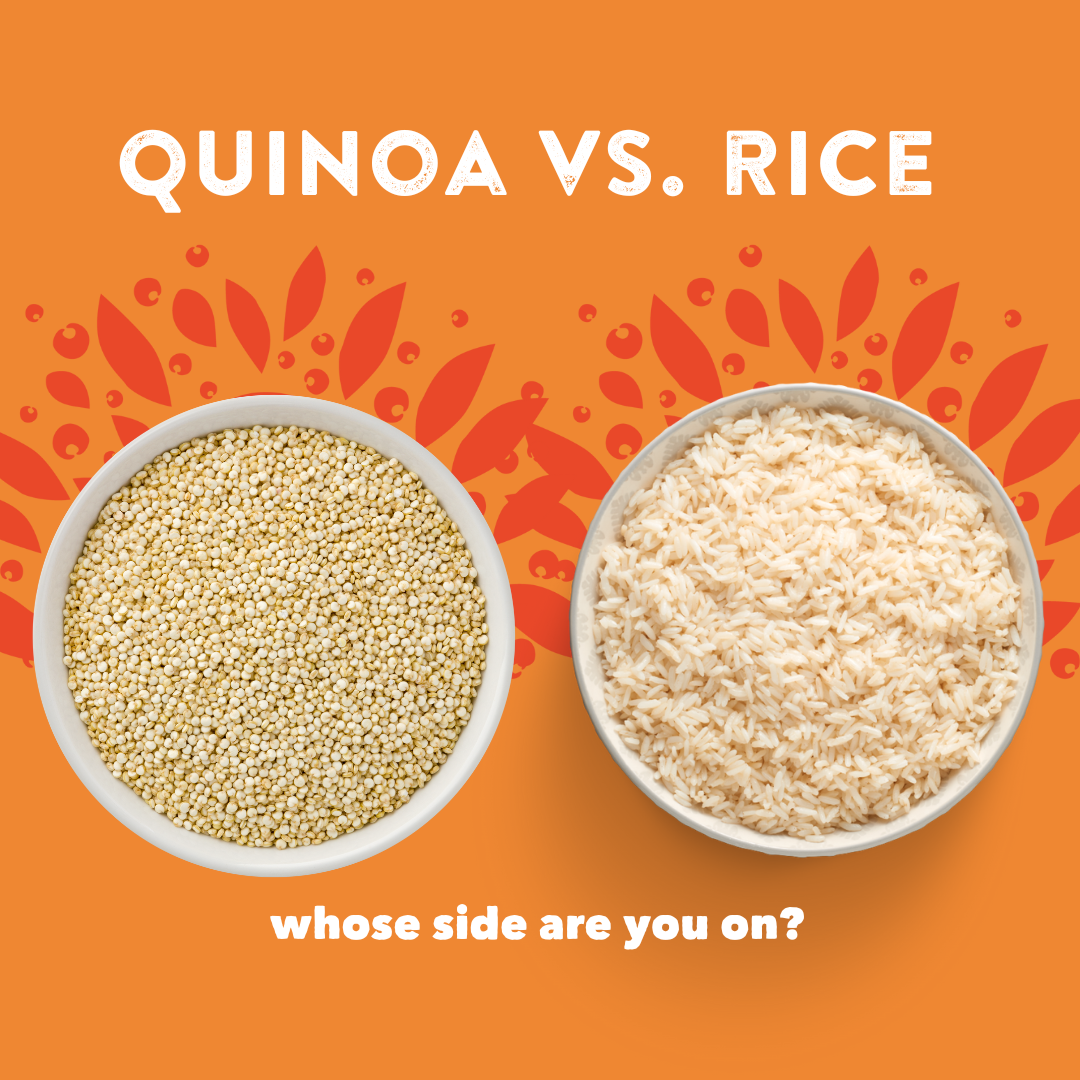Why is Quinoa better for you than rice?
Firstly, Quinoa and rice are both nutritious grains, but they have some differences in terms of their nutritional profiles that might make quinoa a preferred option for some people. Here are a few reasons why quinoa is often considered "better" than rice:
-
Complete Protein: Quinoa is considered a complete protein, meaning it contains all nine essential amino acids that your body cannot produce on its own. This makes it an excellent protein source, especially for vegetarians and vegans. While rice also contains protein, it's not a complete protein and lacks some of the essential amino acids.
-
Fibre Content: Quinoa generally has a higher fibre content compared to most types of rice. Fibre is important for digestion, gut health, and can help manage blood sugar levels.
-
Micronutrients: Quinoa is rich in various essential nutrients such as magnesium, iron, phosphorus, and B vitamins. While rice does contain these nutrients as well, quinoa's content tends to be higher, making it a more nutrient-dense option.
-
Low Glycemic Index: Quinoa has a lower glycemic index compared to many types of rice. This means that it has a slower and more steady impact on blood sugar levels, which can be beneficial for managing diabetes and maintaining stable energy levels.
-
Gluten-Free: Quinoa is naturally gluten-free, which makes it a suitable choice for individuals with celiac disease or gluten sensitivity.
-
Antioxidants: Quinoa contains certain antioxidants like quercetin and kaempferol, which have been associated with various health benefits, including anti-inflammatory and anti-cancer properties. While rice also has antioxidants, quinoa tends to have higher amounts.
-
Nutrient Diversity: Incorporating a variety of whole grains in your diet is generally recommended for overall health. Quinoa offers a different nutrient profile compared to rice, so including it in your diet can contribute to a diverse range of nutrients.
Ultimately, the choice between quinoa and rice should depend on your nutritional goals, dietary restrictions, and personal preferences. Both grains can be part of a healthy diet, and incorporating a variety of grains is often a good approach to ensure you're getting a well-rounded array of nutrients.
|

